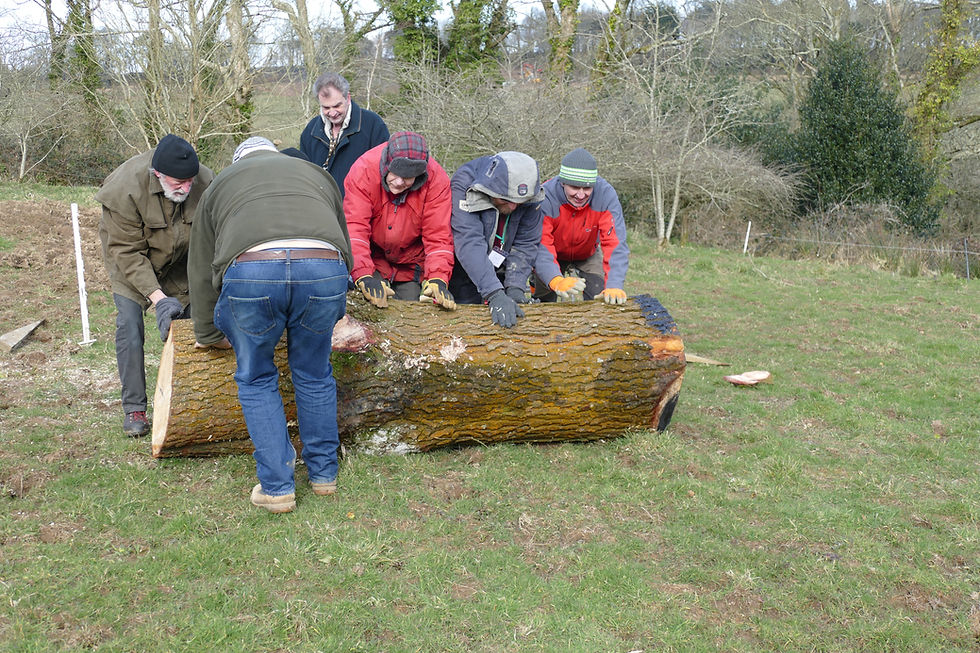High Time to Stop Managing the Bees
- Nov 23, 2016
- 3 min read
Updated: Feb 9, 2020

The BBKA View of Bee Health
Here are some words from the bee health page of the BBKA’s website followed by an extract from the BBKA’s teaching syllabus:
You must be able to manage varroa in your bees, if you want to be a beekeeper. Keeping bees is like keeping other animals. You are responsible for their well-being and must be aware of how to keep them healthy.
The Assessors will examine the Candidates’ method of queen rearing. This does not need to include grafting techniques but will demonstrate that the candidate is selecting the material for breeding and not rely on the use of naturally occurring swarm cells.
The first statement makes it very clear that bees cannot control varroa on their own: the beekeeper must do it.
The second statement makes it very clear that one should not leave the choice of the next generation of queens to the bees: the beekeeper must do it.

The Scientists' View of Bee Health
Here is an alternative view to the above.
Treating against Varroa destructor , not only prevents host-parasite co-evolution, but may also add to the exposure to pesticides thereby possibly compromising colony health.
Recent evidence suggests substantial local adaptations of honey bees enhancing colony survival.
Breeding for V. destructor-resistance over more than 20 years has still not resulted in survival of untreated colonies, but natural selection has delivered [it] multiple times, thereby suggesting that breeders should choose traits favoured by natural selection. This suggests fundamental conceptual flaws in both commercial honey bee queen rearing and breeding.
Since the fitness of a honey bee colony clearly is the number of surviving swarms as well as the number of successfully mating drones (all other traits are only tokens of fitness), the selection by beekeepers for low swarming tendency of colonies and removal of drone brood, mainly to combat V. destructor, remain probably the key factors in limiting natural selection [for varroa resistance].
These words sound like the urgings of those natural beekeepers who allow their colonies to reproduce by swarming and claim to have bees that are naturally varroa resistant without treatment. But they are not, they are the words of eminent biologists taken from an open access paper just published in the journal Evolutionary Applications. The paper draws conclusions based on work by researchers around the world. The list of citations detailing the supporting evidence for the conclusions is extensive and the paper itself is available by following the links here.
It is difficult to imagine a clearer or more robust support of the tenets of natural beekeeping. Yet, conventional beekeeping organisations such as the BBKA insist that only by constant beekeeper interference can bees be kept healthy. This paper makes it abundantly clear that the reality is exactly the converse:
Beekeeping interference with natural selection in combination with globalization of apiculture may have now reached levels, where ill effects are inevitable at the colony level.
For the sake of the bees we call upon the BBKA and similar organisations to take heed of the science and to accept that the path to long term health cannot involve constant beekeeper interference and the use of chemical treatments. What the bees need is to be left in peace, to mate as they will and to be winnowed by that most exquisite and time-proven of mechanisms: natural selection.
For those interested in the detailed science, there is a searchable database on this page.
The author has 20 colonies of bees that have not been treated for varroa for many years. They are healthy and vibrant and reproduce by swarming.
If you like our approach, please help our advocacy by making a donation towards our costs.






Comments